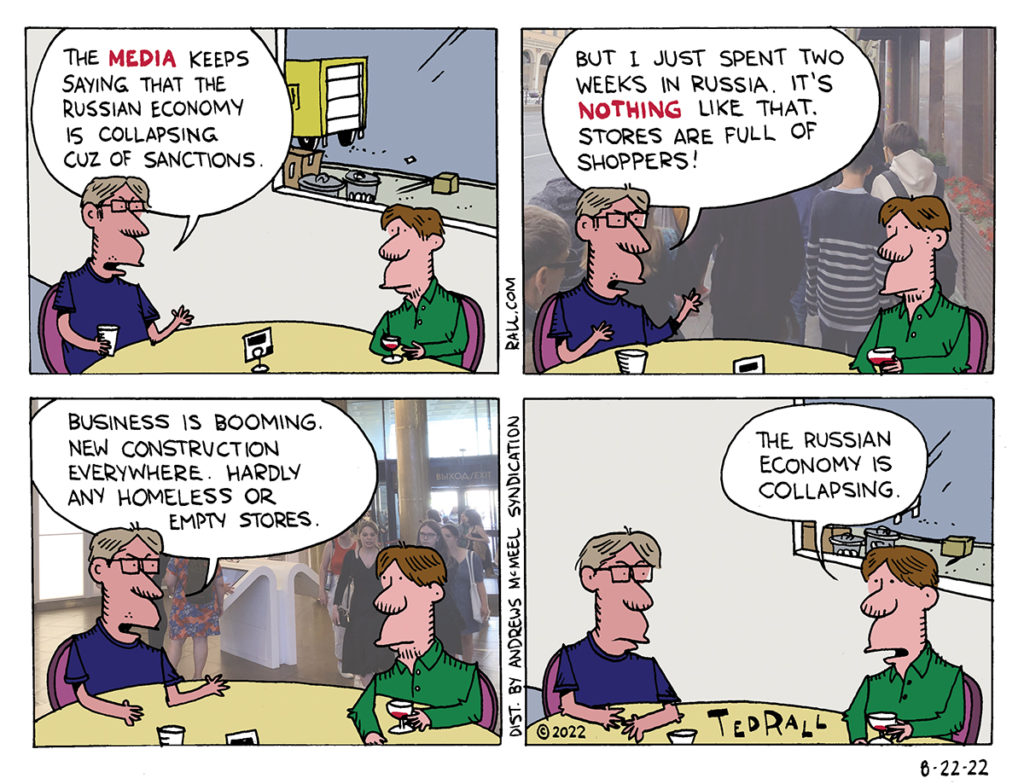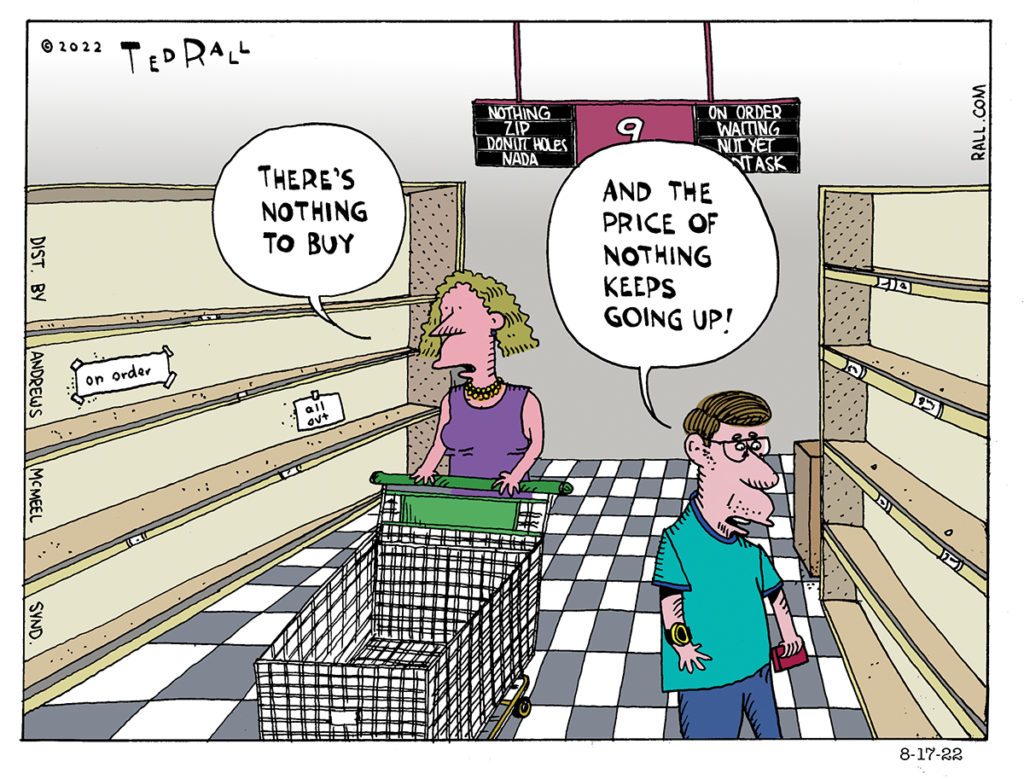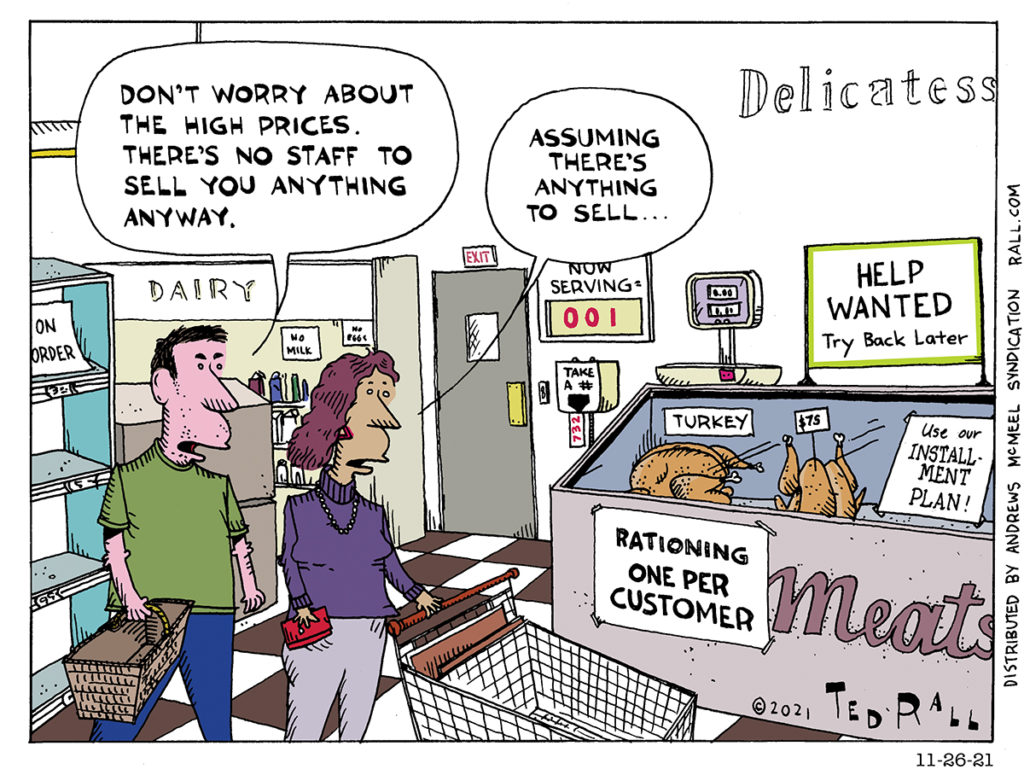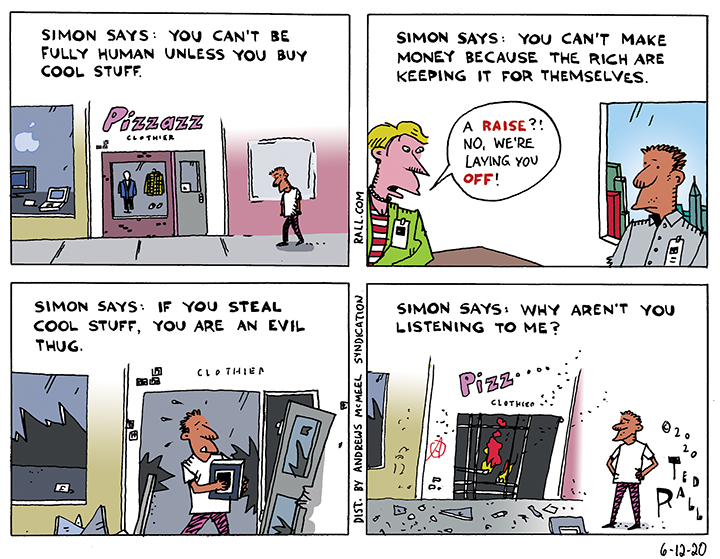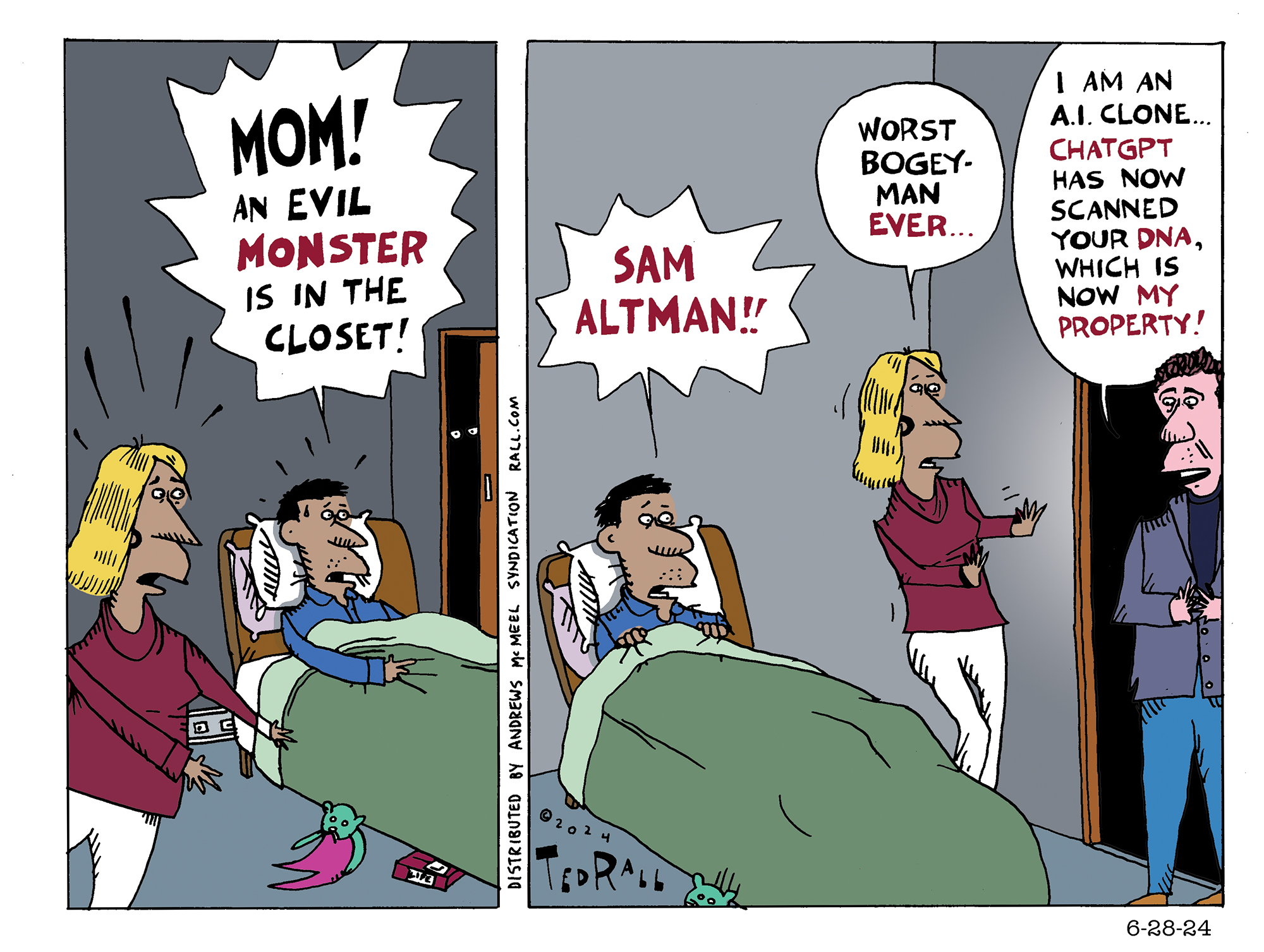 “Get a job!” That’s the clichéd response to panhandlers and anyone else who complains of being broke. But what if you can’t?
“Get a job!” That’s the clichéd response to panhandlers and anyone else who complains of being broke. But what if you can’t?
That dilemma is the crux of an evolving silent crisis that threatens to undermine the foundation of the American economic model.
Two-thirds of gross domestic product, most of the economy, is fueled by personal consumer spending. Most spending is sourced from personal income, overwhelmingly from salaries paid by employers. But employers will need fewer and fewer employees.
You don’t need a business degree to understand the nature of the doom loop. A smaller labor force earns a smaller national income and spends less. As demand shrinks, companies lay off many of their remaining workers, who themselves spend less, on and on until we’re all in bread lines.
Assuming there are any charities collecting enough donations to pay for the bread.
The workforce participation rate has already been shrinking for more than two decades, forcing fewer workers to pay higher taxes. It’s about to get much worse.
Workers are already being replaced by robotics, artificial intelligence and other forms of automation. Estimates vary about how many and how quickly these technologies will kill American jobs as they scale and become widely accepted, but there’s no doubt the effects will be huge and that we will see them sooner rather than later. A report by MIT and Boston University finds that two million manufacturing jobs will disappear within the coming year; Freethink sounds the death knell for 65% of retail gigs in the same startlingly short time span. A different MIT study predicts that “only 23%” of current worker wages will be replaced by automation, but it won’t happen immediately “because of the large upfront costs of AI systems.” Disruptive technologies like A.I. will create new jobs. Overall, however, McKinsey consulting group believes that 12 million Americans will be kicked off their payrolls by 2030.
“Probably none of us will have a job,” Elon Musk said earlier this year. “If you want to do a job that’s kinda like a hobby, you can do a job. But otherwise, A.I. and the robots will provide any goods and services that you want.”
For this to work, Musk observed, idled workers would have to be paid a “universal high income”—the equivalent of a full-time salary, but to stay at home. This is not to be conflated with the “universal basic income” touted by people like Andrew Yang, which is a nominal annual government subsidy, not enough to pay all your expenses.
“It will be an age of abundance,” Musk predicts.
The history of technological progress suggests otherwise. From the construction of bridges across the Thames during the late 18th and early 19th centuries that sidelined London’s wherry men who ferried passengers and goods, to the deindustrialization of the Midwest that has left the heartland of the United States with boarded-up houses and an epic opioid crisis, to Uber and Lyft’s solution to a non-existent problem that now has yellow-taxi drivers committing suicide, ruling-class political and business elites rarely worry about the people who lose their livelihoods to “creative destruction.”
Whether you’re a 55-year-old wherry man or cabbie or accountant who loses your job through no fault of your own other than having the bad luck to be born at a time of dramatic change in the workplace, you always get the same advice. Pay to retrain in another field—hopefully you have savings to pay for it, hopefully your new profession doesn’t become obsolete too! “Embrace a growth mindset.” Whatever that means. Use new tech to help you with your current occupation—until your boss figures out what you’re up to and decides to make do with just the machine.
Look at it from their—the boss’s—perspective. Costs are down, profits are up. They don’t know you, they don’t care about you, guilt isn’t a thing for them. What’s not to like about the robotics revolution?
Those profits, however, belong to us at least as much as they do to “them”—employers, bosses, stockholders. Artificial intelligence and robots are not magic; they were not conjured up from thin air. These technologies were created and developed by human beings on the backs of hundreds of millions of American workers in legacy and now-moribund industries. If the wealthy winners of this latest tech revolution are too short-sighted and cruel to share the abundance with their fellow citizens—if for no better reason than to save their skins from a future violent uprising and their portfolios from disaster when our consumerism-based economy comes crashing down—we should force them to do so.
(Ted Rall (Twitter: @tedrall), the political cartoonist, columnist and graphic novelist, co-hosts the left-vs-right DMZ America podcast with fellow cartoonist Scott Stantis. His latest book, brand-new right now, is the graphic novel 2024: Revisited.)



